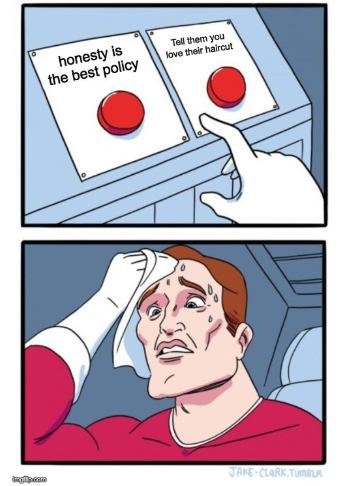Normative Ethical Theory

Everyone seems to have their own moral compass, right? It certainly seems like it. We observe people around us making decisions based on how right or wrong they think those actions are all the time.You probably try to do the same. But how do we know what actions are right and what actions are wrong? Obviously, stealing your mom’s credit card number to buy the new Fortnite battle pass seems pretty wrong, at least your mom would probably think so. But what about Robin Hood stealing from the ultra-rich💰 in order to help the poor? Is that wrong too? They’re both instances of stealing, but the circumstances seem pretty different, don’t they? So, the question is whether we consider the potential outcomes of an action to know whether it is right or wrong or whether we should just think about the action itself. Or maybe neither of these are the right way? These questions are at the root of normative ethical theory and have been a hot topic of debate among philosophers for centuries. So how should you make decisions about your own actions, and how do you want the people around you to make decisions about their actions? Exploring normative ethical theories just might give you some valuable insight.
Videos
Kant & Categorical Imperatives
Crash Course
-
 Kant & Categorical Imperatives
Kant & Categorical Imperatives
-
 Aristotle and Virtue Theory
Aristotle and Virtue Theory
-
 Utilitarianism
Utilitarianism
-
 Normative & Descriptive claims
Normative & Descriptive claims
Key Texts
-
Critique of Practical Reason
Immanuel Kant -
Utilitarianism
John Stuart Mill -
The Methods of Ethics
Henry Sidgwick -
An Introduction to the Principles of Morals and of Legislation
Jeremy Bentham -
A Theory of Justice
John Rawls -
Nicomachean Ethics
Aristotle -
Summa Theologica
Aquinas -
Groundwork for the Metaphysic of Morals
Immanuel Kant
Pop Culture Examples
Want to Know More?
-
Getting Good Results vs. Doing the Right Thing
Learn Liberty Blog -
Consequentialism
Stanford Encyclopedia of Philosophy -
Deontological Ethics
Stanford Encyclopedia of Philosophy -
Virtue Ethics
Stanford Encyclopedia of Philosophy
Questions to Think About
-
If an action is deemed morally wrong in one scenario, is it morally wrong in all scenarios?
-
At what point do positive outcomes justify otherwise morally wrong actions? Who makes this decision?
-
Is it possible to act virtuously all the time? Can we develop this skill or do you have to be born with it?
-
How do you want others to make moral decisions?
-
How should we measure how good the consequences of our actions are?
-
Should a moral theory apply equally to everyone?
Key Thinkers
-

Immanuel Kant
-

Aristotle
-

Saint Thomas Aquinas
-

John Stuart Mill
-

Jeremy Bentham
-

John Rawls
-

John Locke
-

Robert Nozick
-

Henry Sidgwick
-

Carol Gilligan
-

Philippa Foot
-

John Dewey
-

Virginia Held
“Immanuel Kant” by Special Collections at Johns Hopkins University is licensed with CC BY-NC-SA 2.0. To view a copy of this license, visit https://creativecommons.org/licenses/by-nc-sa/2.0/. https://www.flickr.com/photos/41637252@N04/6767329877
“Aristotle” by Nick in exsilio is licensed with CC BY-NC-SA 2.0. To view a copy of this license, visit https://creativecommons.org/licenses/by-nc-sa/2.0/. https://www.flickr.com/photos/33563858@N00/6884873348
“St Thomas Aquinas” by Lawrence OP is licensed with CC BY-NC-ND 2.0. To view a copy of this license, visit https://creativecommons.org/licenses/by-nc-nd/2.0/. https://www.flickr.com/photos/35409814@N00/40626309662
“John Stuart Mill by G F Watts” by Martin Beek is licensed with CC BY-NC-ND 2.0. To view a copy of this license, visit https://creativecommons.org/licenses/by-nc-nd/2.0/. https://www.flickr.com/photos/66122200@N00/2833994816
“File:Portrait of Jeremy Bentham Wellcome M0016939.jpg” by Wellcome Library, London is licensed with CC BY 4.0. To view a copy of this license, visit https://creativecommons.org/licenses/by/4.0. https://commons.wikimedia.org/w/index.php?curid=36373798
Published by the Belknap Press of Harvard University Press. Photograph taken by Alec Rawls.”File:John Rawls (1971 photo portrait).jpg” by Thomas Pogge via Wikimedia Commons is licensed with CC0 1.0 (no copyright). To view a copy of this license, visit https://creativecommons.org/publicdomain/zero/1.0/. https://commons.wikimedia.org/wiki/File:John_Rawls_(1971_photo_portrait).jpg#filelinks
“File:John Locke. Line engraving by G. Vertue, 1738, after Sir G. Wellcome V0003651.jpg” by Wellcome Library, London is licensed with CC BY 4.0. To view a copy of this license, visit https://creativecommons.org/licenses/by/4.0. https://commons.wikimedia.org/w/index.php?curid=36403225
“Henry Sidgwick” by Occult World is licensed with CC BY-SA 2.0. To view a copy of this license, visit https://creativecommons.org/licenses/by-sa/2.0/. https://www.flickr.com/photos/88200115@N04/17508908340
“File:Carol Gilligan P1010970 – cropped.jpg” by Deror avi ; cropped by User:Ravit is licensed with CC BY-SA 3.0. To view a copy of this license, visit https://creativecommons.org/licenses/by-sa/3.0. https://commons.wikimedia.org/w/index.php?curid=15391210
“MM0001595E” by Florida Keys–Public Libraries is licensed under CC BY 2.0. To view a copy of this license, visit https://creativecommons.org/licenses/by/2.0/. https://www.flickr.com/photos/97623182@N00/4690835933
“File:Virginia Held at 2013 Mellon Sawyer Seminar.jpg” by GC Mellon Sawyer is licensed with CC BY 3.0. To view a copy of this license, visit https://creativecommons.org/licenses/by/3.0. https://commons.wikimedia.org/w/index.php?curid=69369100
Key Terms
-
- Normative theory
- theories of how we should act
-
- Consequentialism
- an ethical theory that holds that the result of an action determines how right or wrong it is
-
- Deontology
- an ethical theory that holds that an action is right or wrong depending on whether it accords with a certain rule or rules
-
- Virtue ethics
- an ethical theory that holds that cultivating virtues and a good character is the most important part of living a good life
-
- Care ethics
- a type of virtue ethics theory that places importance on care in addition to justice
-
- Utilitarianism
- an ethical theory that holds that something is right if it brings about the greatest good for the greatest number of people







